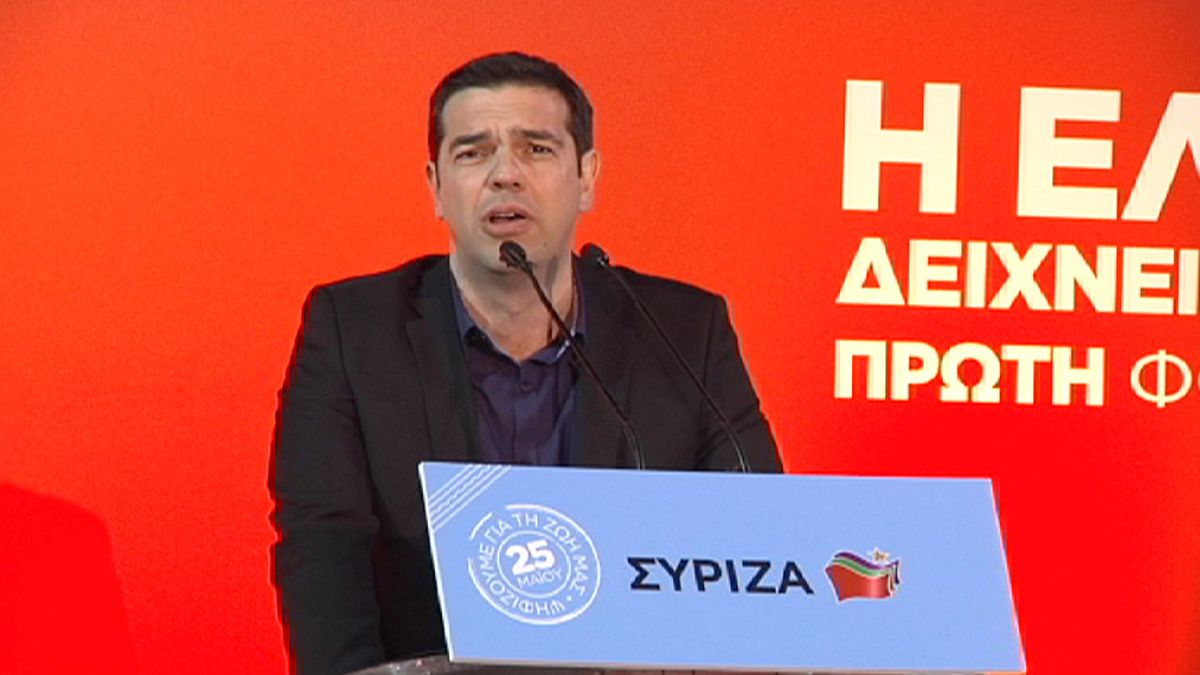For the first time in European parliamentary elections political groups have already chosen their candidates to head the EU Commission, which will be elected once the new parliament is in place.
In this edition of Reporter we take a look at the candidate of the European Left group, Alexis Tsipras, who leads the radical left Greek opposition party, Syriza.
Born and raised in Athens, Tsipras is no stranger to politics. At the age of 17, as a member of the Communist youth party, he led student sit-ins and blockades in the early 1990s against education reforms.
Extremely private about his personal life, he has been with his girlfriend since high school and they have two sons.
Little known outside Greece, just two years ago, Tsipras shot to political fame when Syriza won the second highest number of votes in the 2012 elections.
His supporters are those who suffered most from the financial crisis and subsequent austerity plan imposed on the country by international lenders as part of the country’s bailout programme. Frustrated and angry, many hard-pressed Greeks saw hope in Tsipras.
However, unable to form a government, Tsipras is now head of the Greek opposition and a tireless campaigner to end austerity. But can he succeed?
To find out more about this candidate for the presidency of the European Commission, we joined Tsipras and his election team as he prepared for his next campaign stop. The European ballot and Greece’s municipal elections both take place in May.
In Syros, an island just southeast of Athens, Tsipras met local residents to hear their problems.
He invoked a recurring theme in his speech to the islanders, laying blame on the troika of the European Commission, the Internationla Monetary Fund and the European Central Bank, as well as the Greek government, for bailout austerity measures such as salary cuts and increased taxes.
His words were laced with irony: “We have to congratulate this government and the two previous governments for what they’ve done from 2010 to today because they succeeded in eliminating the middle class in this country. And to increase unemployment to 30 percent and to 60 percent for young people. And they succeeded in kicking out 300,000 brilliant young scientists from our country and make them immigrants.”
During his move from being a member of the Greek Communist Party to becoming the leader of the radical left Syriza party, Tsipras has been an ardent critic of the neo-liberal policies he warns the EU has adopted. But could he negotiate a radical change in Europe with the powers in Brussels?
Matthaios Tsimitakis a former student friend of Tsipras thinks so: “I remember when we formed at some point a 10-member committee to negotiate with the then minister of education and among the 10 members some of us were not really aware of what was going on. We had a bill of demands, but we were not really in a position to negotiate. Alexis was in a position to negotiate. Really negotiate Even then when he was 17.”
From student leader to a rising political figure, Tsipras has had to make a major adjustment. For many Greeks, he is a hero who will stop austerity’s brutal side effects. For others he is a danger to Greece’s future in Europe. But either way, he is now a high- profile public figure.
“He likes the simple life,” says Yiannis Protonotarios, one of Tsipras’ former university teachers and now a personal friend .
“He likes to ride his motorbike and all that. But now being so well known, he cannot really do that. At least not often. That’s why he likes very much to come to my place, where it’s really quiet, where he can pass some, let’s say 10 days, very quietly with his family.
Although he has had to give up his motorbike for body guards, right now Alexis Tsipras is a man with a mission: to convince not only Greeks but Europeans that the European Left party has an important role to play in shaping the EU’s future. Tsipras says he is not anti-Europe but that he wants to end austerity to bring back democracy to Brussels and beyond.
Tsipras says he wants a ‘New Deal’ for Europe. This is what the European Left party hopes Tsipras can bring if he becomes president of the European Commission. But one economist claims Tsipras is more a political message than a real contender for the EU’s top job.
“Greece is a country which suffered a great deal. The Greek people suffered a lot. So for the far left, for those who vote left in Europe, having a Greek candidate is very, very good. But it’s true that Tsipras is very distant from Europe and especially far from what is going on with the crisis and how Europe has tried and is still fighting to get out of this crisis,” says Babis Papdimitriou, who is also a journalist with the Greek newspaper ‘Kathimerini’.
There is little doubt that Tsipras has become a politician to watch out for. With a strong showing in national opinion polls, many wonder if he could be Greece’s next prime minister rather than the next president of the European Commission.
A radical change in Greece or even in Europe – on May 25 Europe’s voters will decide which way they want to go.


